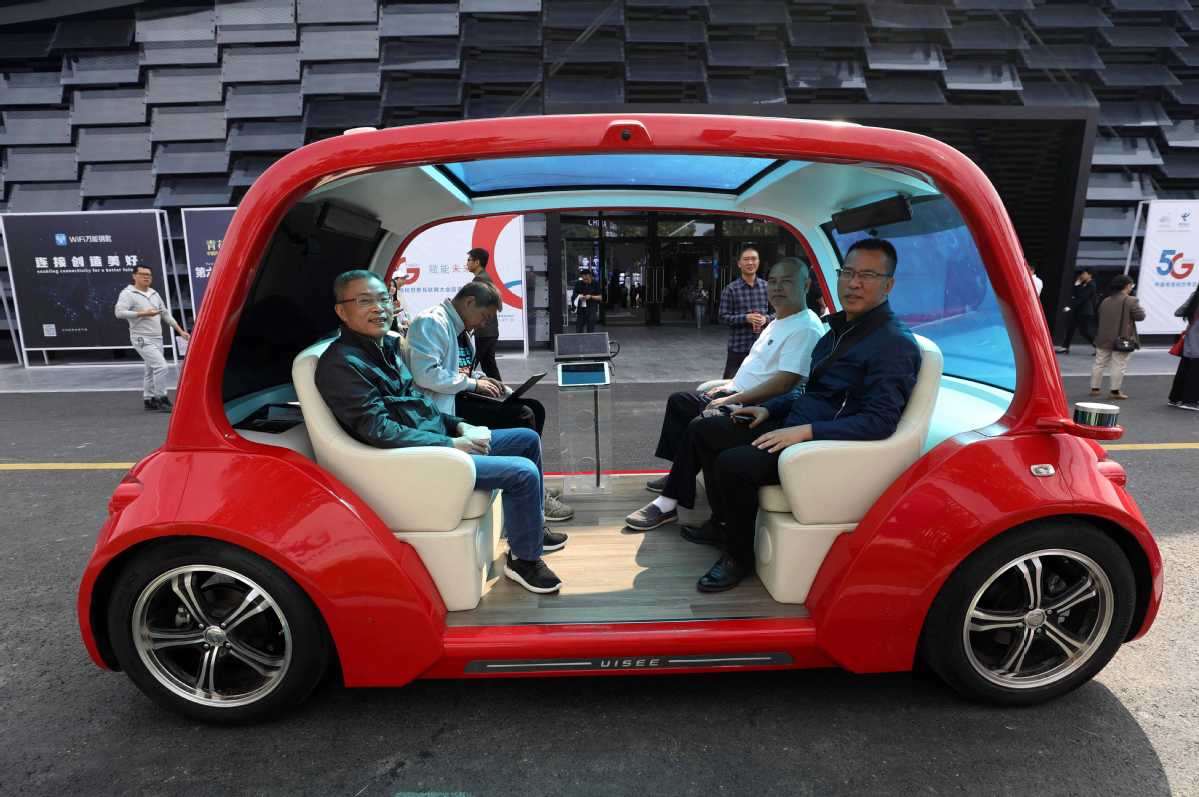Self-driving sector gains momentum


"I believe China's driverless commercial era may come faster than we planned because we are taking the lead in infrastructure efficiency and capabilities around the world," said He Xiaopeng, chairman of China's electric vehicle maker XPENG Motors, at the Boao Forum for Asia annual conference in March 2019.
It is estimated that the revenue from car sales and related services of autonomous driving in China will exceed $500 billion by 2030, according to experts at the second China International Import Expo held in Shanghai in November last year.
The Chinese market has attracted increasing numbers of international car manufacturers to develop their self-driving sector here, said Gao.
"China is the world's largest market for new cars, and the space for large-scale application of new products and technologies of this industry in the future is considerable," she said.
At the 2019 World Intelligent Connected Vehicles Conference held in October, German automaker BMW obtained license plates for intelligent connected vehicles issued by the Shanghai local government.
Thomas Müller, executive vice-president of Volkswagen Group China, said at the 2019 World Internet of Things Exposition held in Wuxi, East China's Jiangsu province, that Audi would focus on expanding China's smart car market and developing self-driving technology to meet the needs of the country's consumers.
Audi's innovation in China would become its basis to develop self-driving vehicles, said Müller, adding that a research center had been set up in Wuxi last year to provide support for the testing of its self-driving vehicles.
But Gao also noted that despite a fruitful year of autonomous driving for Chinese companies and their international partners, there is still a long road ahead for the industry's commercialization, with challenges including the improvement of regulations, the ability to control costs, as well as the sustainability of its commercialization value, to be overcome.



































